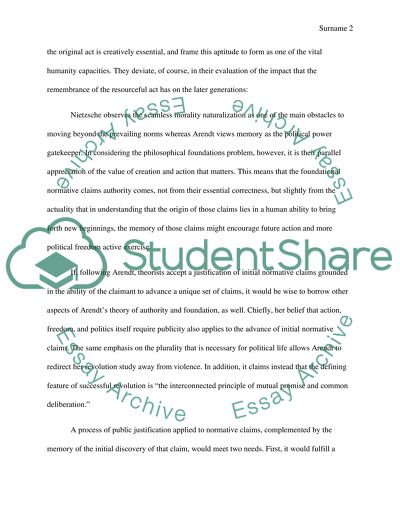Compare and contrast the roles of memory and remembering in Arendt and Essay. Retrieved from https://studentshare.org/philosophy/1463996-compare-and-contrast-the-roles-of-memory-and
Compare and Contrast the Roles of Memory and Remembering in Arendt and Essay. https://studentshare.org/philosophy/1463996-compare-and-contrast-the-roles-of-memory-and.


